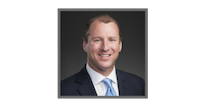It is normal to have swelling and discomfort in the shoulder for several days or a week after surgery.Apply ice bags or use the cryocuff you were given to control swelling. Ice should be applied 20-30 minutes at a time, every hour or two; put a thin towel or T-shirt next to your skin if using ice in a plastic bag. Icing is most important in the first 48 hours, although many people find that continuing it lessens their postoperative pain.
If you had a nerve block, the local anaesthetic may keep your shoulder numb for several hours. You will be given a prescription for powerful pain medication when you are discharged from the hospital. If you find you do not tolerate it well, call our office and we will try another one. Many patients find that lying down accentuates their discomfort. You might sleep better in a recliner, or propped up in bed. A pillow placed behind your elbow may also help.
Keep the postoperative dressing clean and dry. Unless it becomes wet or too tight because of swelling, leave the bandages in place for at least two days. Two days after your surgery remove your bandages. Cover incisions with Band-Aids to keep from snagging the sutures on clothes. You may shower then, but try to keep the incisions dry for the first 10-14 days. Do not wet your incisions directly (bathing or swimming) until at least 2 weeks postop.
The sutures are absorbable and do not need to be removed.
We would like to see you back in the office 10-14 days after surgery. If you don’t have your first post-operative visit scheduled, call our office to make one.
Start your postoperative rehabilitation/physical therapy right away. Your physical therapy program is key to a successful outcome. It should be started the day after surgery. A separate prescription will outline the protocol. It often helps to call before surgery to make an appointment with your physical therapist. Pump your hand and move your writs and elbow to keep the blood circulating and prevent stiffness.
Be in the care of a responsible adult.
Abstain from drinking alcoholic beverages and from smoking.
You may eat a regular diet, if not nauseated. Drink plenty of non-alcoholic, non-caffeinated fluids.
Do not make important decisions or sign legal documents.
Plan to take a few days off work.
For more information on arthroscopic shoulder surgery, please contact Vail, CO sports medicine specialist, Dr. Peter J. Millett.
